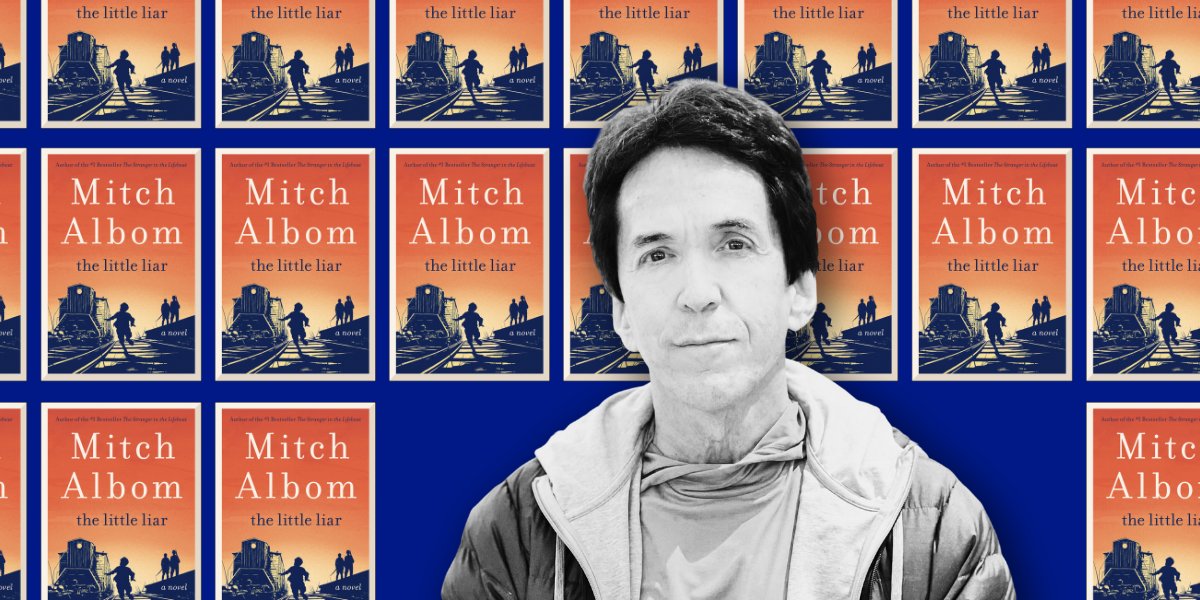Books
Mitch Albom’s ‘The Little Liar’

Mitch Albom’s Tuesdays with Morrie turned the sports journalist into an internationally best-selling memoirist. The Five People You Meet in Heaven launched his successful fiction career. And his newest novel, The Little Liar, set to be released on November 14, ushers him into the well-trodden terrain of Holocaust-related literature.
Yet, The Little Liar will likely stand out from other novels about that era not only for its sharp themes but also for its setting: Salonika, or modern-day Thessaloniki, Greece.
Born in 1958 in New Jersey, Albom has lived near Detroit, Mich., with his family since 1985. Before turning to writing, Albom tried his hand as a professional musician, performing in Greece. It was this experience that led to The Little Liar.
The story unfolds mainly through the eyes of 11-year-old Nico Krispis, who has never told a lie. When the Nazis invade Salonika, Nico innocently believes a German officer who gives him a chance to save his family—if Nico, who is himself Jewish, can convince other Jews to board the trains heading north, to Poland.
“Whenever I write my books,” Albom said, “I try to find a theme that resonates with people. And truth, or lying, is something we’re all familiar with as both victims and perpetrators.” This interview has been edited for brevity and clarity.
What inspired you to write a Holocaust novel, and why now?
I always wanted to set a story during the Holocaust, but I felt like I’d read about the Holocaust so many times, and as a writer, you want to be original, so I just avoided writing about it until now. Then I came up with the combination of setting it in Greece and making it a book about truth and lies—and not really about the Holocaust. I already knew I wanted to create a story about a little boy who never lied. What cemented it for me was when I found out that Salonika had the highest percentage of Jews of all the cities that the Nazis destroyed.
I was able to tell a story that most people hadn’t heard before, set in a culture that a lot of people aren’t familiar with. When you realize the same awful tragedy that we’ve heard in so many different ways wiped out this entire city’s Jewish population, then we get a renewed realization of how really, truly tragic Hitler’s war was.
Where did the idea come from to focus on lies?
I guess it’s always been something that’s interested me because lying is an easy thing to do. You don’t need a particular skill and there have been some great liars throughout history.
About 10 years ago, I was at Yad Vashem in Jerusalem and saw a video of a woman talking about how the worst thing was that the Germans used Jews to lie to other Jews on the train platforms. I thought, “Wow, that’s taking lying to a whole new level because now you’re forcing one of your lies into the mouths of somebody else.”
How do you explain the enduring popularity of Tuesdays with Morrie, about your visits to your former professor, Morrie Schwartz, when he was dying from amyotrophic lateral sclerosis?
I think it’s because people find themselves in Tuesdays with Morrie. Everybody has had a mentor and/or everybody sees themselves in my story. At some point in our lives, we are one of those characters, and the book continues to find readers because people continue to grow.
I am going through that metamorphosis myself, so now I read it from Morrie’s perspective.
What do you think makes a work of fiction Jewish?
The obvious answer is that the subject matter pertains to Jewish history, Jewish character or Jewish plot. But on a deeper level, I think it is a sense of humanity, family, wisdom from various sources and a little dash of humor. It’s also a sense that all of it is taking place under the watch of God.
Ruth Marks Eglash is a Jerusalem-based veteran journalist who writes for multiple outlets.








 Facebook
Facebook Instagram
Instagram Twitter
Twitter
PAM PRICE says
To Mitch Albom,
I look forward to your presentation on March 4th at the Desert Town Hall on in Indian Wells, CA.
I cover various events for the http://www.desertstarweekly, http://www.desertlocalnews , and the San Diego Jewish
Journal. I am very interested in your latest book as I will reporting on your March 4th appearance
in the above publications. Coincidently I recently returned from Thessaloniki recently as will be
covering the soon to be opening of the Jewish Museum. It is ironic that while I was living in
Izmir, Turkey ( 1969-1971 ) a friend told me about the April, 1943 ” trains” that took nearly
95,000 Jewish people to Auschwitz. She never mentioned it again.
This all came to light as I just spent a week in Thessaloniki as I am covering the opening
on their new Museum for several Jewish publications. I look forward to your appearance at the
Desert Town Hall.